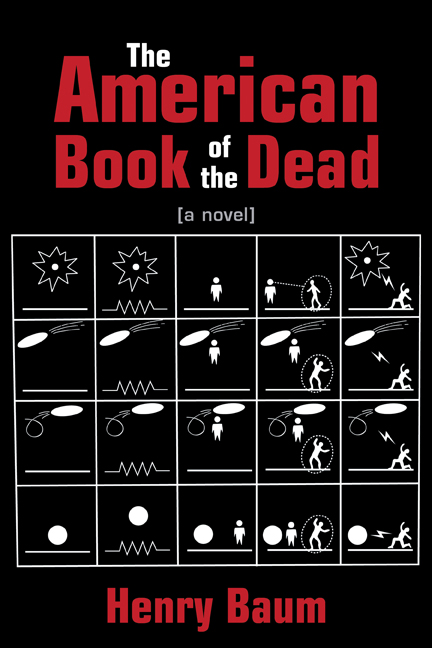I knew going in that I was in for a rough road, and this is the reason I wasn’t even going to bother. It’s a book with science fiction elements, though it’s not straight sci-fi, and I’m not a science fiction writer. I’ve written a book about a stalker and another about a movie star who becomes a serial killer. This one’s about a novelist (me in 20 years) who starts dreaming and writing things that turn out to be real. North of Sunset was criticized for being “too literary” and “too commercial,” which was sort of the idea – to straddle the line between the two. This one was going to be rejected for being “too sci-fi” and “not sci-fi enough” while also being “too literary” and “not literary enough.” In other words a kind of no man’s land, which I see as a kind of badge – it’s a land that hasn’t been done a lot. If you so easily fit into a genre, you’re doing something wrong. A book should be more about the writing than the plot.
I say this again and again: the protagonist in the book is not the lead character, it’s the writer. The plot isn’t so important as how that plot is expressed. So terms like “likeability” are retarded – is the writing likable, is the book well expressed? Plot is the most superficial part of a book – if your book is only about the plot with no subtext, you’re also doing something wrong.
So....long story short, I got back a rejection that was totally unsurprising to me. And that lack of surprise is annoying. The agent said,
Thank you so much for writing to me about your latest book. You are clearly very talented and I love finding material from self-published authors because it tends to be the kind of idiosyncratic work that I like best. But this one isn't a fit, I'm afraid. It's not the writing, which is excellent; rather, it's this kind of futuristic, Phillip K. Dick genre that doesn't work for me.
In short, I like your writing, but I don’t like the plot. Nevermind what I may be able to accomplish over my entire career. Nevermind the story I’m trying to tell over several books, the agent doesn’t like the genre. I understand not wanting to represent something that you’re not totally in love with, but too often writers are measured per book and how easily that book can sell, rather than the writer’s long-term prospects. Yes, the agent could have been looking for a way to let me down easy, but this is a common type of response: looking at plot and genre before the strength of the writing. This is like judging someone on their body and not their brain.
Another agent agreed to read the entire manuscript, so I’ll see where that goes. If not, I’m releasing it myself, confident in the knowledge that publishing is broken.


5 comments:
There's nothing in that rejection bit you've quoted to carp about.
Flip it around and think of what *Philip K. Dick* went through with *his* rejections of all the "mainstream fiction" he tried.
And hey, besides that, you want an agent who will *seriously* sell it. Not someone who'll place a bet and hope the lottery numbers come up. Do you want an actual writing career or luck?
I would like to think that, were I an agent, I would recommend agents who would like the work.
"This is great! It's not for me, but you know who you might try..."
I realize this is a pretty nice rejection as rejections go, but it's something that's bugged me for a while: publishing being one-book centered rather than career-centered.
And Philip K. Dick couldn't make it in the straight world, but the guy supported himself by writing science fiction novels. That's like a paradise, even if his major success came after he died.
And Kristen, you're right, the agent should have said that. Might have played into my overall annoyance.
What an insane word verification: gallys.
To add to what I said, this agent was sold to me as a more personalized agent, more open, and the agent rejected the manuscript based on ten pages. That's the agent's prerogative, but I'll repeat: agents/publishers should be taking on writers, not books.
The other agent I submitted to is very non-personal, sends it out and hopes for the best. At this point, I'm not sure it matters - no amount of personal contact between agent/writer matters if the editor doesn't like the book. It seems increasingly like a crap shoot.
My most frustrating rejection came from an agent who said she liked my book, The Embezzler, but couldn't take it on because she already had too many books to handle.
Post a Comment